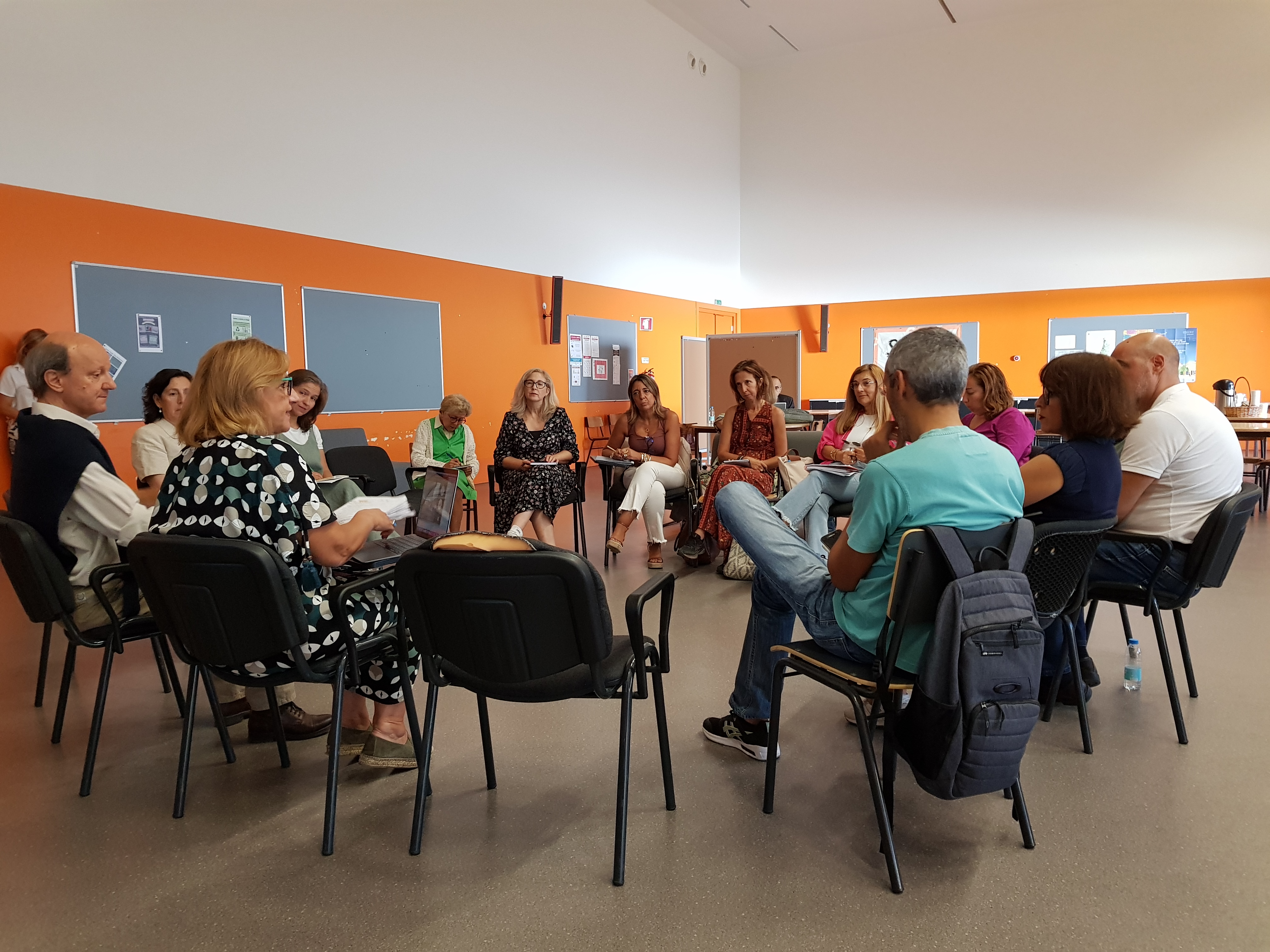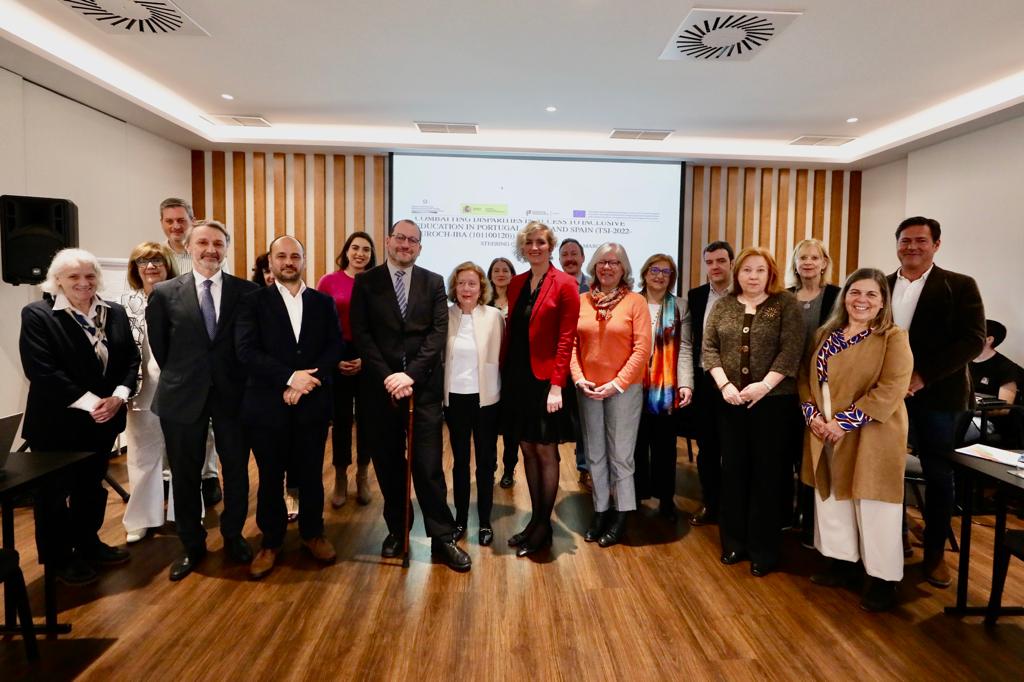The final project dissemination event on Combatting disparities in access to inclusive education in Italy, Portugal and Spain took place on 19 March. Co-organised by EASNIE, the European Commission’s Reform and Investment Task Force (SG REFORM) and the project countries’ ministries of education, the event marked the conclusion of the European Union-funded project via the Technical Support Instrument (TSI).
Around 70 participants attended the online event, including representatives from the ministries of education of Italy, Portugal and Spain, regional education stakeholders, SG REFORM and EASNIE. The event provided an overview of the multi-country flagship project’s key phases, results and outcomes, reflecting on the lessons learned and the next steps in advancing inclusive education policies across the three member countries.
Ciresica Feyer, Deputy Head of Unit for the European Pillar of Social Rights at SG REFORM, opened the event, outlining the key stages of the project. She stressed that inclusive education reform requires sustained efforts from national policy-makers down to classroom-level practitioners, highlighting the ‘need to strike the right balance between school autonomy and flexibility on the one hand, and the harmonised set of principles and standards to be followed throughout the territory’.
EASNIE Director João Costa noted that while the principles of inclusive education are widely supported across Europe, implementation remains a major challenge. He stressed that countries often struggle with monitoring, funding and teacher preparedness, making cross-country collaboration especially valuable. Dr Costa highlighted that, while each country’s education system is unique, their similar challenges make shared learning essential in developing effective strategies for inclusive education. He also emphasised that the three countries have now ‘concrete tools in their hands in order to move forward in this agenda of inclusive education’.
Mónica Domínguez García, Director General of Evaluation and Territorial Co-operation at the Spanish Ministry of Education, Vocational Training and Sport, commended the collaboration with EASNIE, stressing that this is the time to put the shared vision into practice by embracing classroom diversity.
EASNIE project leads Diana Murdoch and Ruta Svarinskaite provided an overview of the project. They described how a bottom-up participatory approach ensured active engagement from stakeholders in regional working groups, online peer-learning activities and study visits. They also described the project outputs, including outline action plans and follow-up reports on immediate steps for each country.
Gordon Porter, project research advisor from Canada, stressed that effective inclusion depends on ensuring that teachers receive the right kind of support. He presented models from Canada and acknowledged the importance of support teachers in helping classroom teachers integrate inclusive practices across the entire classroom.
Regional representatives, including headteachers and educational support staff from Italy, Portugal and Spain, shared their perspectives on their participation in the project and the benefits of regional collaboration.
Members of the project Steering Committee and ministry representatives outlined how they plan to use the project’s findings and results. Mariangela Di Gneo, a ministry official from Italy, emphasised the role of cross-regional collaboration in fostering innovation and outlining the country’s next steps in implementing inclusive reforms. Maria João Horta, Deputy Director-General for Education from Portugal, reflected on Portugal’s journey, from closing special schools in 2008 to introducing a new law in 2018, and acknowledged that legislation alone does not guarantee smooth implementation. Collaboration with countries that prioritise inclusive education has been particularly beneficial for continuous reflection at all levels. Lucio Calleja Bachiller, Deputy Director-General for Territorial Co‑operation and Educational Innovation in Spain, highlighted how the project work has been implemented in different actions at country level and indicated the need for on-going engagement with stakeholders to ensure effective implementation.
Closing the event, Elisa Gómez Alemán from SG REFORM, reaffirmed the European Commission’s commitment to supporting inclusive education through future initiatives. She underlined ‘the value in working collaboratively across these three Mediterranean countries, which share similarities in their education reforms but also have distinct features that warranted careful attention’.
Further details about EASNIE’s work through the TSI can be found on the TSI web area.
EASNIE’s YouTube channel contains videos of three webinars that took place as part of this TSI project. Webinar 1 examines monitoring and evaluation at school level, webinar 2 looks at collaboration across all system levels, and webinar 3 focuses on resource allocation at school and regional levels.

